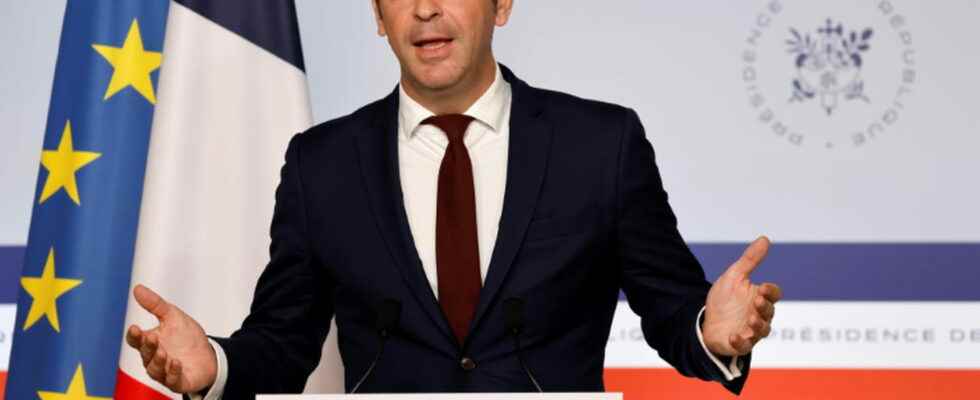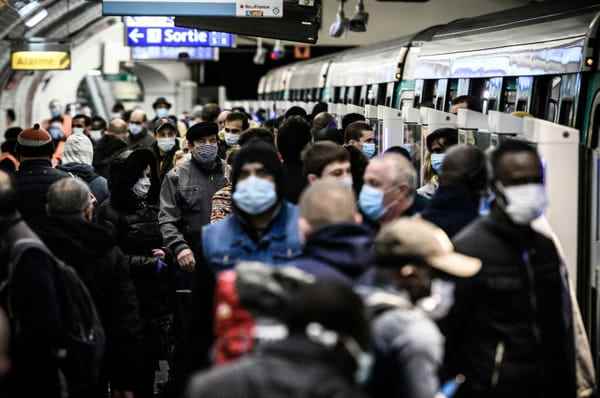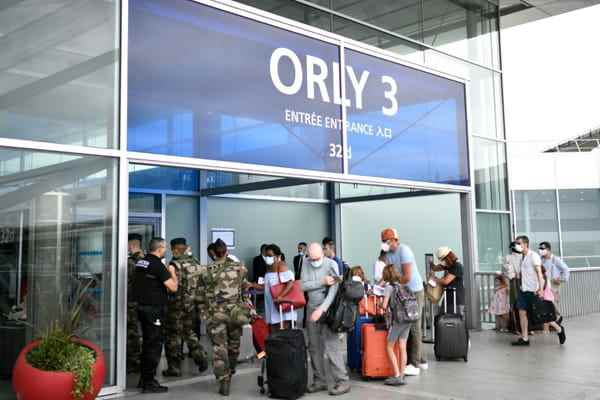The last major anti-Covid restriction will disappear in France. Travelers will no longer have to wear a mask in transport from Monday, an announcement made by the government in full decline in the epidemic even if it is probably not over.
“From Monday May 16, wearing a mask will no longer be compulsory in all public transport,” said Mr. Véran at the end of the Council of Ministers. Are concerned in particular the subway, the bus, the train, the plane and the taxis, specified the cabinet of the ministry to the AFP.
Shortly after this statement, the European Aviation Safety Agency (EASA) announced the lifting from Monday of the obligation to wear a mask at airports and on board planes throughout the European Union.
In France, the Minister of Health insists that wearing a mask remains “recommended”, but the reality will probably resemble supermarkets or cinemas, where such relief is already in place: the vast majority of faces will again be discovered.
This will therefore be the end of the last major marker of the epidemic of Covid-19 in the public space, a decision that confirms the fact that the disease has become a lesser health and political concern.
“The situation is improving”, summarized Olivier Véran, while, for more than a month, contaminations and hospitalizations are finally decreasing after a very long winter wave.
This has itself proved to be manageable by hospitals, due to the good protection of the population by vaccination, as well as the relatively low dangerousness of the Omicron variant, which appeared at the end of 2021.
The daily average of new contaminations over seven days, which smoothes the variations, stood at 40,299 on Wednesday, against 47,925 the previous Wednesday.
A drop which is also confirmed in the hospital since 20,152 Covid patients were hospitalized, against 22,319 a week earlier.
Alongside health considerations, the Covid had moved to the background of concerns, the health situation remaining very little mentioned during the presidential campaign which saw the re-election of Emmanuel Macron.
In this context, the government had already taken several emblematic measures in recent months, in particular putting an end in March to the wearing of masks, except in transport, and to the vaccination pass, which required being vaccinated against Covid to access many places like restaurants and cinemas.
– “Not finished” –
With the announced end of the mask in transport, France, like several of its neighbors, will have almost regained its life before the pandemic, more than two years after its arrival in Europe.
Some researchers warn, as such, against an excessive feeling of security, warning that the epidemic is under control but probably not over, especially in the face of the threat of a new variant.
In France, “the pandemic is clearly not over, even if we can hope that, given the levels of immunity in the population (…), we can move on to a more transitional phase”, underlined the week last Sylvie van der Werf, virologist at the Pasteur Institute during a press briefing from the National Agency for Research on AIDS and Viral Hepatitis (ANRS).
The government is showing the same line. The Minister of Health also affirms that “the pandemic is not over”, and some restrictions will also be maintained.
A “health” pass – distinct from the vaccination pass because it also works in the event of a recent negative test – will remain required to access health establishments in the broad sense (hospitals, nursing homes, etc.). The measure will last at least until the summer, according to Olivier Véran.
In addition, an isolation of at least one week will always be imposed after a positive test.
At the hospital level, unvaccinated caregivers, who cannot currently carry out their activity, will not be reinstated immediately, but the government says it continues to ask the question.
“We will have to re-examine ourselves regularly,” said the minister, expressing his intention to seek the opinion of the High Authority for Health (HAS) on the subject soon.
Finally, the Minister raised the possibility of a new vaccination booster campaign in the fall, but refrained from giving any details, stressing that everything would depend on the appearance of new variants and their profile more or less dangerous or resistant to existing vaccines.
All rights of reproduction and representation reserved. © (2022) Agence France-Presse


